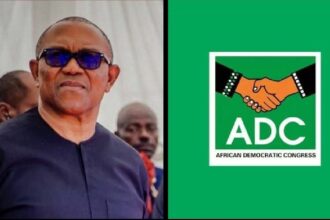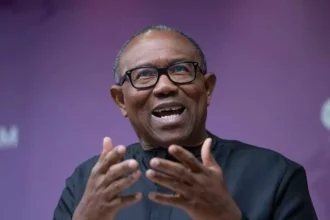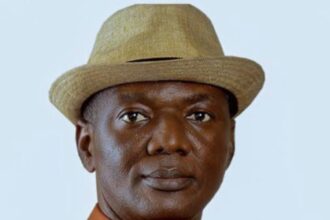
The Peoples Democratic Party (PDP) has condemned a ruling by the Federal Court of Canada that classified Nigeria’s two major political parties, the PDP and the All Progressives Congress (APC), as terrorist organisations. The court’s decision was part of a judgment denying asylum to Douglas Egharevba, a former member of both parties, due to his decade-long affiliation with them. Justice Phuong Ngo, in a ruling delivered on June 17, 2025, upheld an earlier determination by the Immigration Appeal Division (IAD) that found Egharevba inadmissible under Canada’s Immigration and Refugee Protection Act (IRPA).
According to Canadian authorities, intelligence reports linked both parties to electoral violence, politically motivated killings, and actions considered subversive to democracy. The IAD cited incidents during the 2003 state elections and 2004 local government polls, alleging the PDP engaged in ballot stuffing, voter intimidation, and violence against opposition supporters, with party leadership benefiting from the unrest and taking no action to stop it.
The court ruled that membership in an organisation associated with terrorism or democratic subversion is sufficient grounds for inadmissibility under Canadian law, even without evidence of personal involvement in such acts. Reacting, PDP Deputy National Youth Leader Timothy Osadolor described the verdict as unfounded and unjustified. He argued there was no evidence to support classifying either the PDP or APC as terrorist organisations and cautioned against making sweeping allegations that could damage democratic institutions.
Osadolor acknowledged that some individuals in government may have questionable ties but said this should not be used to brand entire political parties. He urged Canadian authorities to focus on specific cases against individuals rather than applying broad labels. Former NNPC Chief Corporate Communications Officer, Olufemi Soneye, also criticised the ruling, warning it could have far-reaching legal, diplomatic, and democratic consequences. He said equating mainstream political affiliation with terrorism risks damaging Nigeria–Canada relations, undermining democratic legitimacy, and discouraging political participation, particularly among young people.
Soneye argued that the precedent could be adopted by other countries, potentially leading to visa denials, asylum rejections, and heightened scrutiny for Nigerians with past or current ties to either party. He called for the decision to be revisited, saying it threatens pluralism and could be used as a tool to silence political opposition globally.
Source: https://www.vanguardngr.com/








